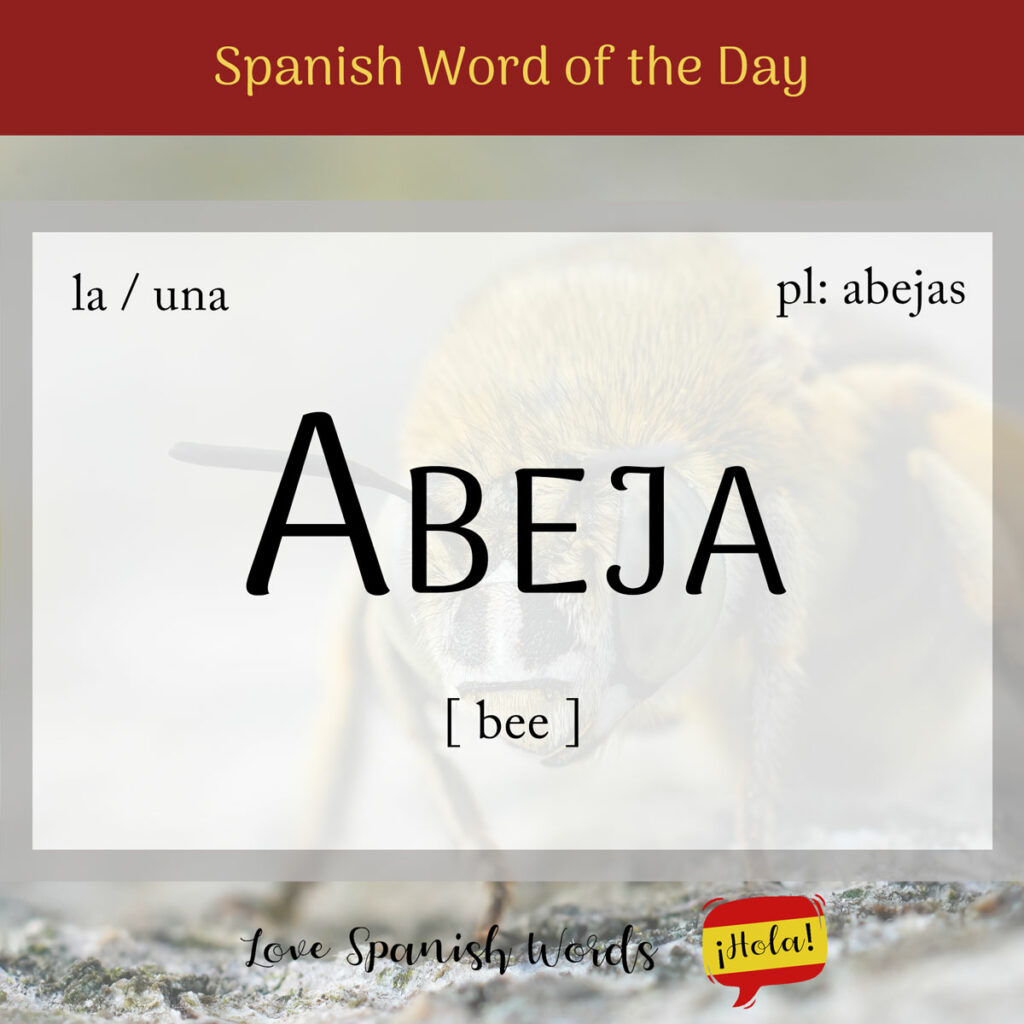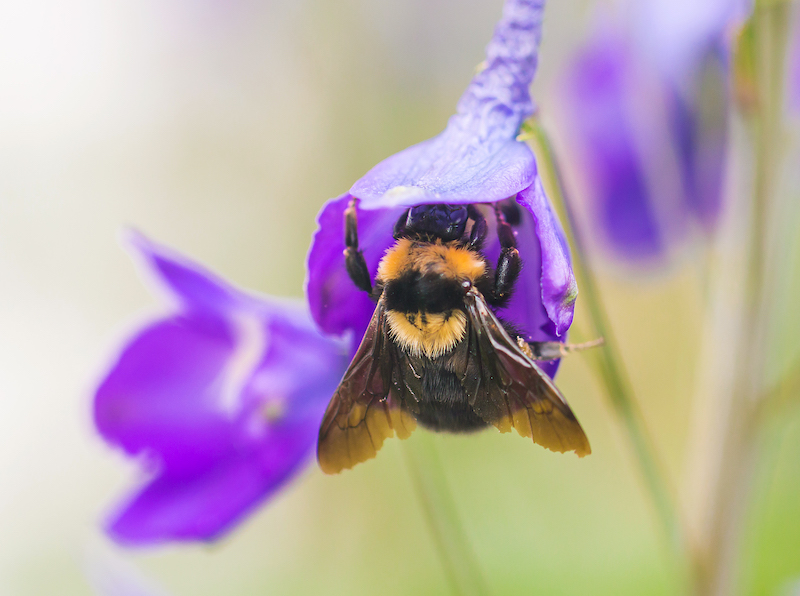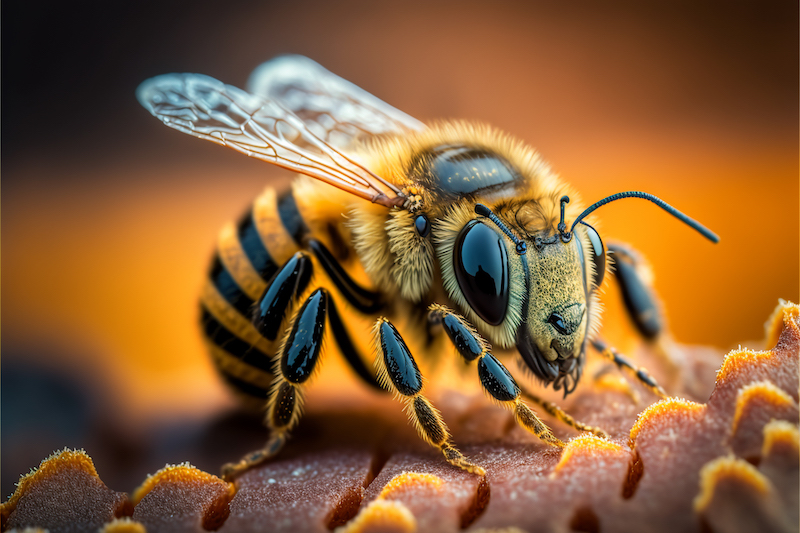What do Spanish speakers call the insect that buzzes from flower to flower, collecting pollen to make honey? The answer is abeja!
Latin American Pronunciation
European Pronunciation

This word derives from the Old Spanish abeja, which in turn comes from Latin apicula.
Abeja is a feminine noun whose plural form is abejas and it takes the following definite and indefinte articles:
- la abeja = the bee
- las abejas = the bees
- una abeja = a bee
- unas abejas = some bees
¡La abeja me picó!
The bee stung me!
Abejas melíferas (honey bees) have three different roles within the colonia (colony). At the top of the chain sits the abeja reina, or queen bee, whose job is to poner huevos (lay eggs) and regulate the unity of the colony. The worker bees, known as abejas neutras or abejas obreras, are involved in food collection, nest building, and brood rearing. The abejas zánganos, or drones, are responsible for fertilising (fecundar) the queen.
The bumblebee is commonly known as abejorro in Spanish, but you may also hear the terms moscardón, mangangá and cigarrón.

The sound produced by a bee is known as a buzz in English, whereas in Spanish, it is zumbido. The verb to buzz, on the other hand, is zumbar.
Las abejas producen el zumbido batiendo sus alas.
Bees produce the buzzing sound by flapping their wings.
A bee sting, or picadura de abeja, can be very painful and sometimes cause a reacción alérgica (allergic reaction) in certain people. Because the stinger (aguijón) detaches itself from the body of the bee, the insect usually dies within minutes of the attack.
Below are a few additional terms that are related to bees:
- colmena / abejera = man-made beehive
- panal / nido de abejas = natural beehive
- flor = flower
- néctar = nectar
- cera de abeja = beeswax
- apicultor / abejero = beekeeper
- miel = honey
- polen = pollen
- apicultura / cría de abejas = beekeeping
- panal = honeycomb
- polinizador = pollinator

Figuratively speaking, abeja can also refer to a hard worker or busy bee in some Spanish speaking countries.
What’s more, in Colombia, it can function as both a noun and an adjective to describe someone who is sly, slick, or clever, either positively in a business context or negatively in the sense that the person takes advantage of others.
Carlos ese tipo es muy abeja. No confiaría en él.
Carlos is as sly as a fox. I wouldn’t trust him.

